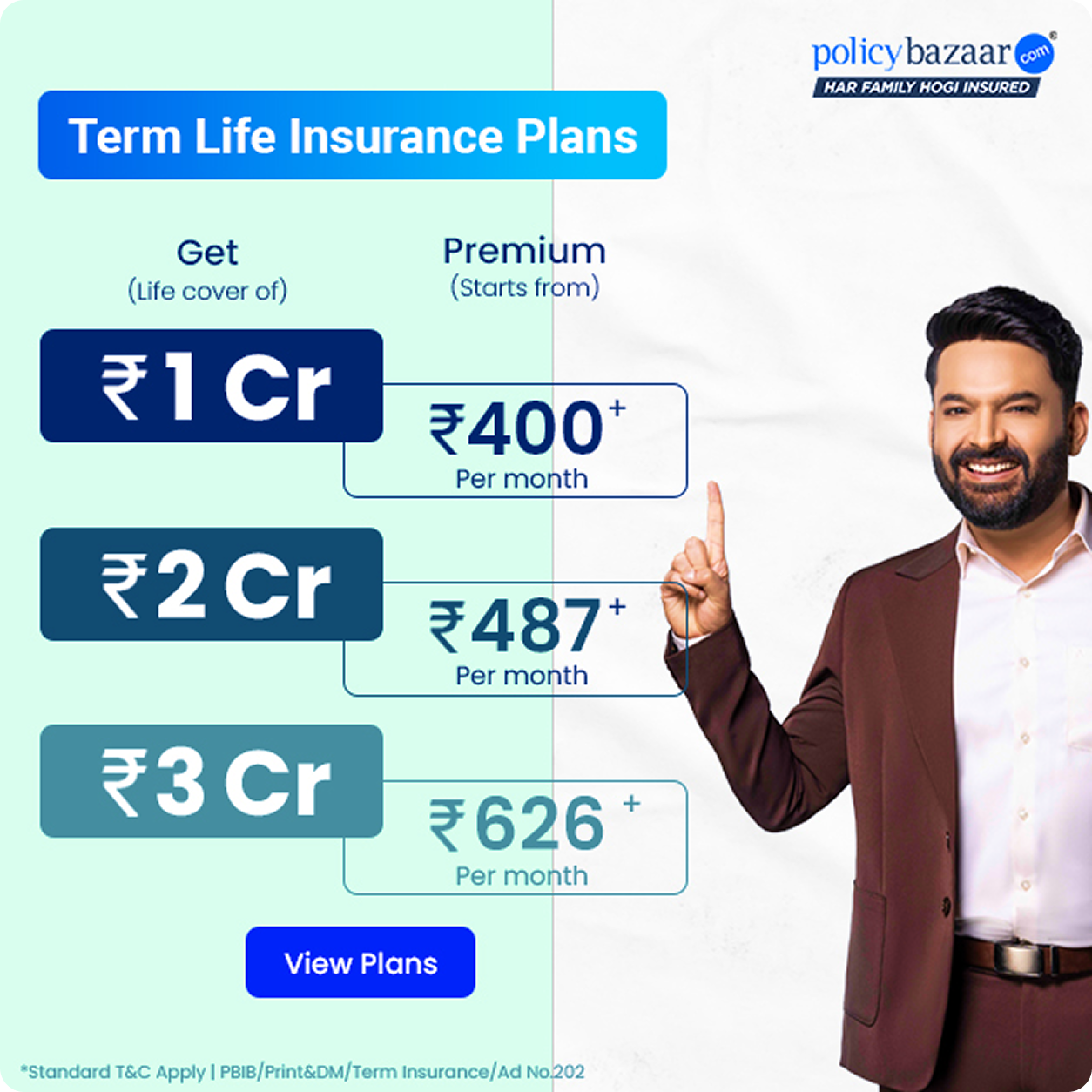SBI Group Term Insurance
SBI Group term plan is a pure risk life insurance product with the sole aim to financially support the employee’s family in the event of death during the policy term. The large sum assured helps the family absorb the trauma of losing the breadwinner and come to terms to resume life afresh. Unlike the individual term plan, the SBI Group Term Insurance is a feature-rich, cost-effective solution helping the companies to fulfil their obligations toward their employees and their families.

The USP of the SBI Group Term Insurance is an affordable group term life insurance product designed to cater to different group categories, broadly classified as formal and informal. The formal group reinforces the Employer-Employee (EE) bond. In contrast, the informal group covers several classes like credit groups, affinity groups, bank depositors, professional groups, social groups, rural groups, etc., broadly clubbed as the Non-Employer-Employee (NEE) group.
Eligibility Criteria for SBI Group Term Plans
It is already understood that there are broadly two group categories – The EE and the NEE. In the former, the primary requirement is that the employee must be on the company’s permanent payroll seeking to purchase the SBI Group Term Insurance. The NEE, on the other hand, has a common thread binding them. Based on these two principal themes, the eligibility criteria defined in the SBI Group Term Insurance are:
|
Parameter |
Conditions |
|
Minimum Entry Age |
EE Group: 18 years NEE Group: 16 years. |
|
Maximum Entry Age |
EE Group: 79 years NEE Group: 79 years. |
|
Maximum Maturity Age |
EE Group: 80 years NEE Group: 80 years. |
|
Policy Term |
Renewable every year |
|
Premium |
Depends on the sum assured |
|
Minimum Sum Assured |
EE Group: Rs.1000 per member NEE Group: Rs.1000 per member |
|
Maximum Sum Assured |
EE Group: Rs.50 Crore per group member NEE Group: Rs.50 Crore per group member |
|
Minimum Group Size |
EE Group: 10 members NEE group: 10 members |
Salient Features of SBI Group Term Insurance Plans
The SBI Group Term Insurance is a comprehensive security package providing a fully flexible customizable tuned to the policyholder’s needs. The primary advantages of the policy are:
Security
A group term life insurance plan covers the group member to support dependants in an unfortunate eventuality financially.
Flexibility
The group’s preferences are factored in to define plan benefits. It includes defining the sum assured as per the master policyholder’s needs. It is either a Fixed Sum Assured across the board to all group members, or a Graded Sum Assured based on employee rank and salary scale. Additionally, the policyholder has a wide choice both in terms of riders and options to enhance coverage.
Simplicity
The enrolment and on-boarding are seamless and straightforward. The master policyholder accomplishes the membership enrolment through a simple application form.
The SBI Group Term Insurance has a wide range of features catering to every individual preference to provide optimum customization. Let us summarize all the key features for easy comprehension:
- The SBI Group Term Insurance is a single master policy covering all the members of the group.
- The plan is backed by the SBI, India’s largest commercial bank with a 24/7 service and global acceptability.
- The master policy is fully customizable by using the following options to accommodate individual preferences.
- Coverage Type: The policyholder can decide between a Flat, or Graded coverage, meaning that the sum assured is uniform across the board for all group members in the former, and sum assured is determined by multiple factors of age, rank, salary scale making it variable.
- Coverage Amount: There are two ways to determine the member’s coverage, either as salary multiple or cost-to-company.
- Life Cover: The life cover is a substitute for EDLI.
- Risk Component: It provides for the group tern insurance to select the component under any defined benefit or defined contribution scheme.
- The master policyholder is the administrator empowered with specific privileges to maintain the policy, renew, and update the master roll with additions and deletions as and when required.
- The SBI Group Term Insurance provides a wide range of riders and options to tailor the policy according to the group member’s needs.
Core Benefits of SBI Group Term Insurance Plans
Apart from the salient features mentioned above, the SBI Group Term Insurance has a wide range of benefits catering to every individual preference to provide optimum customization. Here is a rundown of the key benefits offered under the SBI Group Term Insurance Plans:
Death Benefit
The sum assured benefit is payable to the member’s nominee in the event of demise due to natural causes, accidents, or on the diagnosis of critical and terminal illness if opted for.
Maturity Benefit
The SBI Group Term Insurance does not provide any maturity benefit.
Rider Benefit
The policy offers a wide range of riders to ensure that the members and their dependents are well protected.
- Group Rider – ASTPD
- Group Rider – AD
- Group Rider – ATPD
- Group Rider – APPD
- Critical Illness Riders: four-rider variants are offered under this head with two formulae – Additional and Accelerated.
Optional Benefits
Below are the optional benefits offered under the SBI Group Term Plans:
Convertibility
The insured member can opt to convert the group plan into an individual plan of SBI Life.
Terminal Illness Benefit
It is applied only in the EE group where the master policyholder can opt for this benefit, meaning diagnosing a disease that is likely to be fatal within 180 days.
Spouse Cover Benefit
The master policyholder can opt for this benefit for a minimum group size of 250, either made compulsory or voluntary.
Death Benefit Settlement
By this option, the death benefit is paid in installments, spread over 5 years.
Tax Benefit
The GOI governs every life insurance product promulgated extant Income Tax Laws and subject to amendment from time to time. The master policyholder’s premium is entitled to tax exemption under Section 37 (1) as a legitimate business expense.
The Process to Purchase SBI Group Term Insurance
SBI Life has a strong pan India presence, and the SBI Group Term Insurance can be purchased in many ways. The digital model is convenient, with simple basic questions answered to receive the insurer’s assistance. The essential information sought is the company’s name, industry type, group size, plan name, city, contact person’s name, and phone number, and the authority to be called. Other than the digital route, the master policyholder can engage a suitable broker or visit the nearest brick and mortar office to accomplish the job.
Documents Required while Buying SBI Group Term Insurance Policies
Membership enrolment in the SBI Group Term Insurance is seamless, with most companies advocating a simple application form. It is with claims that understanding documentation becomes essential for a smooth settlement. Accordingly, the documents required for some typical situations are described below. It is to be noted that it is only indicative, and the insurer may call for additional documents if needed.
Natural Death Claim
- Claim Form
- Death Certificate from the appropriate authority
- Nominee’s KYC documents
- Nominee’s bank account details, including IFSC information
Accidental Death Claim
- Claim Form
- Death Certificate
- Medical reports if hospitalized
- All investigation reports and Police related documents
Critical Illness Claim
- Claim Form
- Diagnosis and Investigation reports
- Hospital medical records
- Treating Doctor’s Certificate
Other Features of Group Term Plans by SBI
Apart from the aforementioned key features offered under the group term insurance policies by SBI, here are some other features that come packed with the plans:
For the Employer
- A comprehensive employee benefits package with options to customize
- A critical tool to retain and attract employee assets
- Simple to maintain and administer
For the Employee
- Global acceptance with 24/7 SBI support
- Boosts employee morale and peace of mind
- No medical examination is required on enrolment up to Free Cover Limit
- Coverage grows with rank and promotions
Terms and Conditions under SBI Group Term Plans
Let us have a look at the terms and conditions for group term insurance policies by SBI:
Free Look
The policyholder is entitled to a free look period of 15 days to review the policy features. If not satisfied with the provisions, the policy may be returned stating reasons.
Profit-sharing
The SBI Group Term Insurance provides for profit-sharing as per the accepted formula. The financial benefit is reflected in the following year’s premium reduction. Losses are carried over for adjustments with future profits.
Grace Period
The SBI Group Term Insurance policy is up for renewal every policy anniversary, and the term is one year. The policyholder gets a breathing time called the grace period of 15 days for the monthly premium and 30 days for other frequencies to renew the policy.
Exclusions of SBI Group Term Policies
The key exclusions of SBI Group Term Insurance Plans are as follows:
Suicide Claim
When the suicide claim is excluded for the event occurring within the first twelve months, the policyholder is entitled to receive 80% of all the paid premiums, minus the incidental charges and taxes.
Critical Illness
- A claim is not paid within 90 days from the policy inception date or the member’s entry date.
- The survival period of additional benefit is 30 days.
Terminal Illness
The benefit excludes those affected with HIV or AIDs.
General Exclusions
- Self-inflicted injury or attempt at suicide
- Medical conditions originating from alcoholism, solvent abuse, or drug addictions
- Accidents and medical conditions arising from participation in extreme sports, hazardous activities, and potentially dangerous hobbies
- Medical conditions arising from perils of war, invasion, war-games, or civil actions like strikes, riots, etc.
- Radioactive contamination from nuclear leaks and explosions
- Treatment-related to congenital disabilities
*For a detailed list of exclusions, please refer to the policy document or the product brochure.
Note: Check all the best term insurance plan in India.
Note: You should also check the benefits of term life insurance if you are planning to purchase the term insurance plan.
FAQs
-
Q1. What are the different premium payment options in the SBI Group Term Insurance?
A1. The policyholder can choose the premium payment frequencies according to the convenience of yearly, half-yearly, quarterly, and monthly installments.
-
Q2. What are the two formulas applied to the Critical Illness Rider’s Claim settlement in the SBI Group Term Insurance?
A2. The two formulas applied in Critical Illness Rider Claim are Additional and Accelerated. In the former, the Rider sum assured is paid upon expiry of the survival period from the diagnosis date, and the base policy coverage is not affected. On the other hand, in the accelerated formula, the rider sum assured is paid on diagnosis, and the base policy sum assured is reduced by a like amount.
-
Q3. What happens to the SBI Group Term Insurance if premiums are not paid in time?
A3. The policy renewal on the due anniversary date extends the policy term by another year. If there is premium default even after the grace period expiry, the policy lapses, and the risk cover ceases.
-
Q4. What are the restrictions in choosing rider options from the SBI Group Term Insurance’s wide variety?
A4. As already seen, the policyholder is spoilt for choice with the wide range of riders on offer. However, the choice is restricted to one from the Group Rider category and one from the Critical Illness category.
-
Q5. What are the conditions for the SBI Group Term Insurance policy revival?
A5. The policy lapses if the policyholder defaults in premium payment for renewal. The lapsed policy is revived within five years from the first default date, subject to compliance with SBI Life rules.
-
Q6. What are the governing rules in the Spouse Cover Benefit option?
A6. The option is available only at the master policyholder level for the group strength of a minimum of 250 members. The option is either compulsory or voluntary. Accordingly, the EE group compulsory coverage is capped at Rs.15 Lakh, and the EE voluntary, affinity, and other groups at Rs.10 Lakh.
-
Q7. What are the governing rules for the Convertibility option in the SBI Group Term Insurance?
A7. The member can invoke the convertibility option within 30 days of leaving the company. The other restrictions applied to the converted policy are the maximum age at 50 years and amount cap at Rs.10 Lakh. Plan rider options are not eligible for conversion.
-
Q8. Which parameters are applied for life cover in the SBI Group Term Insurance chosen instead of EDLI?
A8. For the life cover in place of EDLI, the minimum entry age, maximum entry age and maturity age are as per the EDLI 1976 rules. It overrides the SBI Group Term Insurance parameters.
-
Q9. What are the tax benefits enjoyed by members of the SBI Group Term Insurance?
A9. Where the member pays the premium, tax exemption under Section 80 C of the IT Act, 1961 is applicable. The additional premium for Critical Illness Rider is entitled to exemption under Section 80d of the IT Act, 1961.
Disclaimer: Policybazaar does not endorse, rate or recommend any particular insurer or insurance product offered by an insurer.
*All savings are provided by the insurer as per the IRDAI approved insurance plan. Standard T&C apply.
**Tax benefit is subject to changes in tax laws

Explore the popular searches and stay informed
- 1 Crore Term Insurance
- Best Term Insurance Plan
- Term Insurance for Women
- Term Insurance for NRI
- Term Insurance
- Term Insurance Calculator
- Life Insurance
- Term Insurance with Return of Premium
- Whole Life Insurance
- Term Insurance vs Life Insurance
- What is Term Insurance
- Life Insurance Calculator
- 5 Crore Term Insurance
- 2 Crore Term Insurance
- 50 Lakh Term Insurance
- Term Insurance for Housewife
- Benefits of Term Insurance
- Term Insurance Terminology
- Medical Tests for Term Insurance
- Term Insurance for Self Employed
- Claim Settlement Ratio
- 10 Crore Term Insurance
- Term Insurance for Smokers
- 1.5 Crore Term Insurance
- Zero Cost Term Insurance
- Home Loan Insurance Calculator
- FIRE Calculator
- EMI Calculator
- LIC
- Investment Plan
- Annuity Plan
- Child Plan
- Pension Plan
- ULIP Plan
- Child Investment Plan
- SIP
- LIC Calculator
- SIP Calculator
- SBI SIP
- ULIP Calculator
- Sukanya Samriddhi Yojana
- Best SIP Plans
- Retirement Planning
- SBI SIP Calculator
- HDFC SIP Calculator
- Sukanya Samriddhi Yojana Interest Rate
- NPS Interest Rate
- Deferred Annuity Plans
- SBI Annuity Deposit Scheme Calculator
- Immediate Annuity Plans
- Post Office Child Plan
- Prime Minister Schemes For Boy Child
- Government Schemes for Girl Child
- 50k Pension Per Month
- Atal Pension Yojana Calculator
- Best Pension Plan in India
- CIBIL Score
˜The insurers/plans mentioned are arranged in order of highest to lowest Sum Assured(SA) offered by Policybazaar’s insurer partners offering term insurance plans on our platform, as per ‘first year premium of life insurers as at 31.03.2025 report’ published by IRDAI.
Policybazaar does not endorse, rate or recommend any particular insurer or insurance product offered by any insurer. For complete list of insurers in India refer to the IRDAI website www.irdai.gov.in
Rs. 400/month is starting price for a 1 crore term life insurance for an 18 year-old male, non-smoker, with no pre-existing diseases, cover upto 30 years of age, rounded off to nearest 10.
Rs. 400/month (Rs.13/day) is starting price for a 1 crore term life insurance for an 18 year-old male, non-smoker, with no pre-existing diseases, cover upto 30 years of age.
+Rs. 230 is starting price for a 50 lakhs term life insurance for an 18 year-old male, non-smoker, with no pre-existing diseases, cover upto 30 years of age, rounded off to nearest 10.
+Rs. 8/day is starting price for a 50 lakhs term life insurance for an 18 year-old male, non-smoker, with no pre-existing diseases, cover upto 30 years of age, rounded off to nearest 10.
+Rs. 12/day is starting price for a 75 lakhs term life insurance for an 18 year-old male, non-smoker, with no pre-existing diseases, cover upto 30 years of age, rounded off to nearest 10.
+Rs. 497/month is starting price for a 1.5 crore term life insurance for an 18 year-old male, non-smoker, with no pre-existing diseases, cover upto 30 years of age.
+Rs. 487/month is starting price for a 2 crore term life insurance for an 18 year-old male, non-smoker, with no pre-existing diseases, cover upto 30 years of age.
+Rs. 626/month is starting price for a 3 crore term life insurance for an 18 year-old male, non-smoker, with no pre-existing diseases, cover upto 30 years of age.
+Rs. 905/month is starting price for a 5 crore term life insurance for an 18 year-old male, non-smoker, with no pre-existing diseases, cover upto 30 years of age.
+Rs. ₹361/month is the starting price for a ₹1 crore loan cover with an 8% interest rate for an 18-year-old male, non-smoker, with no pre-existing diseases, loan tenure up to 20 years, rounded off to the nearest 10
+Rs. 1,267/month is starting price for a 7 crore term life insurance for an 18 year-old male, non-smoker, with no pre-existing diseases, cover upto 30 years of age.
*The full refund of premium is available on availing the one-time option of refund of premium. Total premium paid for policy (paid for add-ons) will be the special exit value, payable on availing the one-time option of refund of premium if you wish to completely exit the policy.
+Rs. 447/month is starting price for a 1 crore term life insurance for an (NRI) 18 year-old male, non-smoker, with no pre-existing diseases, cover upto 30 years of age.
+Rs.679/month is starting price for a 2 crore term life insurance for an (NRI) 18 year-old male, non-smoker, with no pre-existing diseases, cover upto 30 years of age.
+Rs. 910/month is starting price for a 3 crore term life insurance for an (NRI) 18 year-old male, non-smoker, with no pre-existing diseases, cover upto 30 years of age.
+Rs. 1,374/month is starting price for a 5 crore term life insurance for an (NRI) 18 year-old male, non-smoker, with no pre-existing diseases, cover upto 30 years of age.
+Rs. 1,924month is starting price for a 7 crore term life insurance for an (NRI) 18 year-old male, non-smoker, with no pre-existing diseases, cover upto 30 years of age.
Women
+Rs. 400/month is Starting price for a 1 crore term life insurance for an 18 year-old Female, non-smoker, with no pre-existing diseases, cover upto 30 years of age, rounded off to nearest 10.
Rs. 461/month is the starting price for a 1 crore term life insurance for an 24 year-old female, non-smoker, with no pre-existing diseases, cover upto 54 years of age.
1,642/month is the starting price for a 1 crore term life insurance for an 44 year-old female, non-smoker, with no pre-existing diseases, cover upto 74 years of age.
Prices offered by the insurer are as per the approved insurance plans | #All savings and online discounts are provided by insurers as per IRDAI approved insurance plans | Standard Terms and Conditions Apply | **Tax Benefits are subject to changes in tax laws.| Policybazaar Insurance Brokers Private Limited
We will respond in the first instance within 30 minutes of the customers contacting us. 30-minute claim support service is for the purpose of giving reasonable assistance to the policyholder in pursuance of the claim. Settlement of claim (including cashless claim) is the responsibility of the insurer as per policy terms and conditions. The 30-minute claim support is subject to our operations not being impacted by a system failure or force majeure event or for reasons beyond our control. For further details, 24x7 Claims Support Helpline can be reached out at 1800-258-5881
For more details on risk factors, terms and conditions, please read the sales brochure carefully before concluding a sale
Policybazaar Insurance Brokers Private Limited | CIN: U74999HR2014PTC053454 | Registered Office - Plot No.119, Sector - 44, Gurgaon, Haryana – 122001 | Registration No. 742, Valid till 09/06/2027, License category- Composite Broker Visitors are hereby informed that their information submitted on the website may be shared with insurers. Product information is authentic and solely based on the information received from the insurers.
© Copyright 2008-2026 policybazaar.com. All Rights Reserved
˜ Policybazaar Promise reflects the guarantee offered by insurers. Price assurance is based on certifications shared by insurers with us.
































